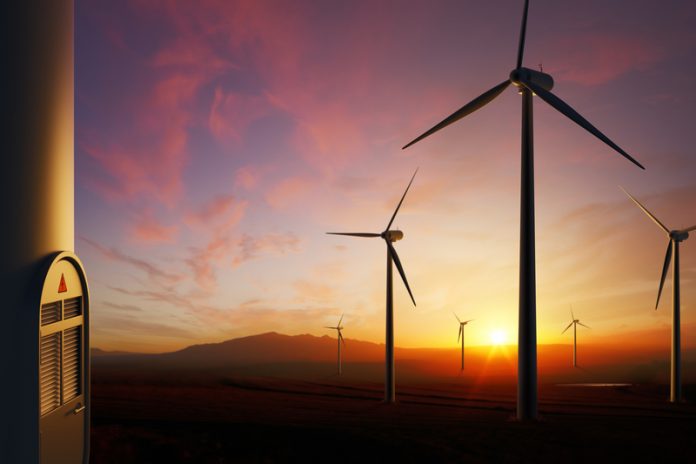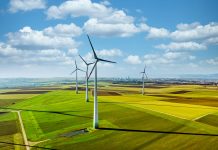Open Access Government discuss UK Energy Policy and the priorities that the Rt Hon Kwasi Kwarteng MP has set out for 2021 in his new role as Secretary of State for Business, Energy and Industrial Strategy
The Rt Hon Kwasi Kwarteng MP was appointed Secretary of State at the Department of Business, Energy and Industrial Strategy (BEIS) on 8 January 2021, taking over from the Rt Hon Alok Sharma MP. In assuming this role, Mr Kwarteng will oversee developing and delivering a comprehensive industrial strategy and leading the government’s relationship with business, ensuring that the country has secure energy supplies that are reliable, affordable and clean. It is vital to ensure the UK remains at the leading edge of science, research and innovation, and most important of all, tackling climate change.
By doing this, it will significantly help to deliver the Prime Minister’s Ten Point Plan for a Green Industrial Revolution, reaching the legally binding target of net-zero emissions by 2050, and unleashing innovation across all four nations of the UK, cementing the country’s position as a science superpower while building the foundations for the new industries of tomorrow.
Energy Policy for 2021 and beyond
At the end of 2020, Minister Kwarteng wrote to Ofgem outlining government priorities for the energy system. He highlighted that electricity networks are a crucial enabler for achieving net-zero emissions in the UK by 2050.
He discussed how the work towards a low carbon generation can be broadly dived into four layers of the system:
- Flexibility markets.
- Data.
- Institutional arrangements that govern the energy system.
- Investment in physical infrastructure.
Furthermore, the government recently set out the next step towards a green industrial revolution as it announced the fourth round of the Contracts for Difference (CfD) scheme, opening late 2021. The scheme is the government’s primary method of supporting low carbon electricity and will aim to double the capacity of renewable energy compared to the last round and will expand the number of technologies supported, with offshore wind, onshore wind, solar, tidal and floating offshore wind projects all eligible to bid. In September 2019, the UK saw how the third round of the CfD renewable energy auction delivered record-low prices on enough clean energy to power over seven million homes.
The fourth round will see three ‘pots’ for renewables technologies which will be supported:
- Pot 1: Established technologies – including onshore wind and solar PV.
- Pot 2: Less-established technologies – including floating offshore wind, Advanced Conversion Technologies and tidal stream.
- Pot 3: Offshore wind.
“The UK is a world leader in clean energy, with over a third of our electricity now coming from renewables. That huge achievement is thanks to the government’s Contracts for Difference scheme,” stated Kwasi Kwarteng.
Offshore wind
March 2021 brought a £95 million government investment for two new offshore wind ports to be constructed in the UK, creating 6,000 new jobs in the North. This is the first major step in developing the Prime Minister’s green pledge to provide enough energy from offshore wind to power every home in the UK by 2030. Meeting his target will quadruple the UK’s offshore wind capacity. Once complete, the two new ports will have the capacity to support the development of up to 9GW of energy offshore wind projects each year – enough electricity to power around eight million homes.
Business and Energy Secretary Kwasi Kwarteng stated that “the offshore wind sector is a major British industrial success story, providing cheap, green electricity while supporting thousands of good-quality jobs. While the UK has the largest installed capacity of offshore wind in the world, we are determined to ensure we are fully capturing the economic benefits in this country.”
Energy for white goods
This year, fridges, washing machines and televisions will all soon be cheaper to run, easier to repair and will last longer thanks to plans for new energy efficiency legislation announced by the UK government in March.
Ministers are set to introduce these tough new rules for electrical products to tackle ‘premature obsolescence’ – which means having a short lifespan deliberately built into an appliance by manufacturers which leads to unnecessary and costly replacements for the consumer.
Mr Kwasi Kwarteng discussed these plans, stating, “our plans to tighten product standards will ensure more of our electrical goods can be fixed rather than thrown on the scrap heap, putting more money back in the pockets of consumers whilst protecting the environment. Going forward, our upcoming energy efficiency framework will push electrical products to use even less energy and material resources, saving people money on their bills and reducing carbon emissions as we work to reach net-zero by 2050.”
The government has also published a summary of responses to a recent call for evidence on energy-related products, which explored the scope for introducing an even more ambitious climate-friendly policy for energy-consuming appliances now that the UK has left the EU transition period. This work feeds into a forthcoming policy framework, which the Prime Minister included in his 10 Point Plan.
The UK government’s commitment to building back better and greener from the COVID-19 pandemic will significantly rely on the increased use of renewable energy, and the new Industrial Decarbonisation Strategy announced this year is truly setting an ambitious vision for the world’s first low carbon industrial sector, slashing emissions by two-thirds in just 15 years.











